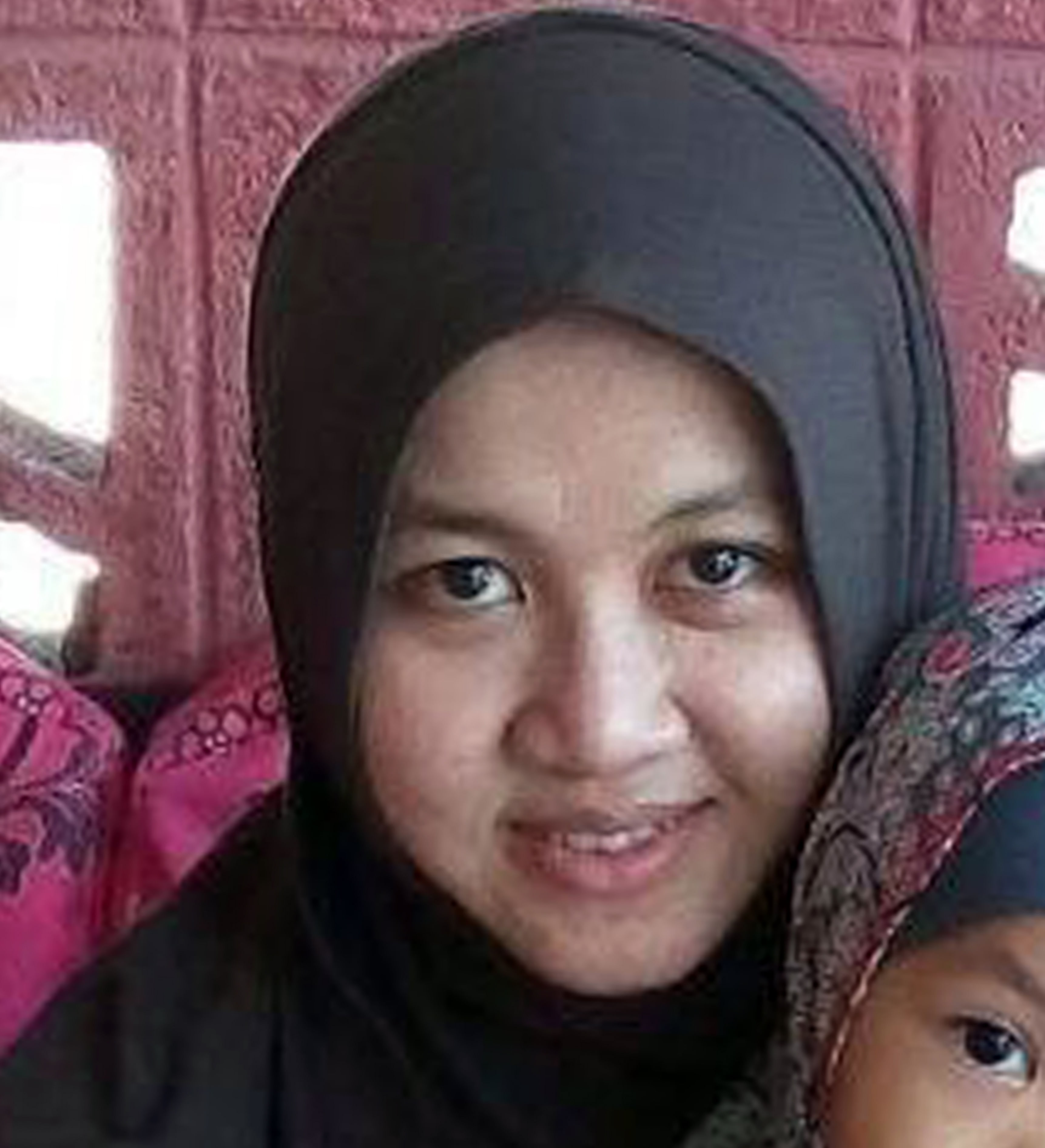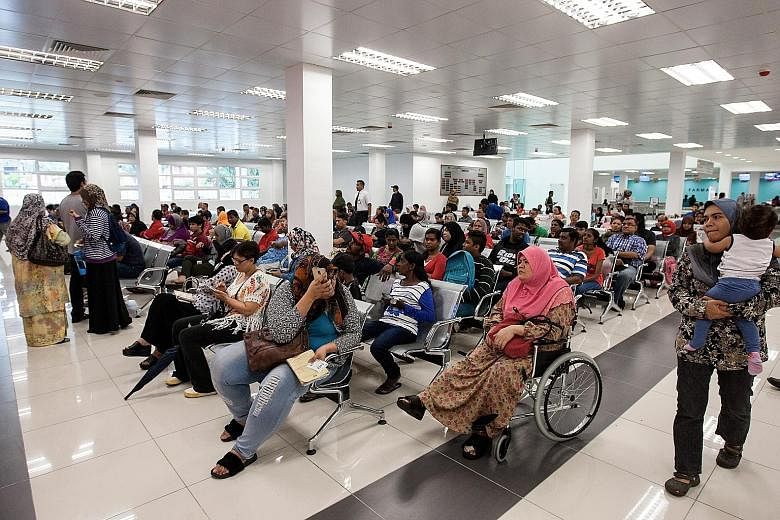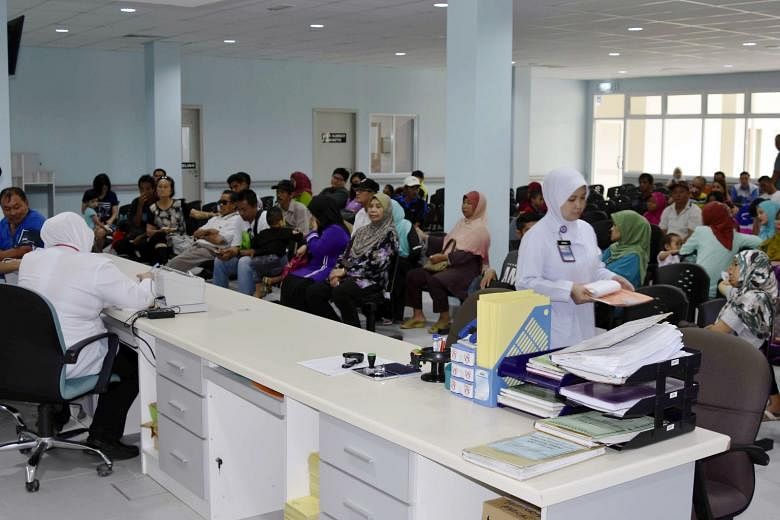As a paediatrician in training, Dr Nurul Huda Ahmad dreamed of making healthcare fun for children.
But her dream will never come true. The 33-year-old from Kuala Terengganu was driving home after working for 33 hours straight, with little rest, when she died in an accident on May 9.
In July last year, another young doctor, anaesthesiologist Afifah Mohd Ghazi, also died in similar tragic circumstances.
Worn out after a long shift, Dr Afifah lost control of her car and crashed into a tree, resulting in fatal injuries to her chest and brain. She was only 27.
Post-call fatigue is nothing new in the medical world, especially for doctors in the public health sector.
But the situation is worsening as more Malaysians switch to public hospitals to cope with the rising cost of living in recent years, especially since the 6 per cent goods and services tax (GST) was introduced on April 1, 2015.
The influx has added to doctors' workloads and, in many instances, led to deadly consequences, according to anecdotal accounts from physicians and surveys by medical associations.

-
55% Percentage of accidents that occurred after respondents had worked for 25 to 36 hours, according to a 2015 survey of 440 healthcare professionals.
65% Percentage of respondents who admitted they suffered from post-accident psychological trauma.
Dr Rozaimi (not his real name), a 35-year-old doctor at a public hospital in Selangor, told The Straits Times that he and his peers suffer from chronic fatigue and high levels of stress. "There is no job without stress and fatigue, but I've lost count of how many times I've accidentally fallen asleep behind the wheel post-call," said Dr Rozaimi.
"One incident will always stand out - I had just completed a 35-hour shift and was driving to my home in Shah Alam. I accidentally swerved into the fast lane when a car was already speeding along it. The loud honks (from the driver) saved me, I managed to swerve back into my lane."
Dr Kuan (not his real name), 32, has also had his share of near-miss post-call experiences.
He said: "Although most of us (doctors) have adjusted to our hectic schedules, I can never forget an incident several years ago when I almost lost my life. I crashed into a divider and my car ended up in a drain. My injuries were minor but I could have drowned.
"After transferring to a research department two years ago, I no longer work more than 24 hours at a stretch. My quality of life has improved tremendously and I have not fallen asleep behind the wheel any more.
"We have all been guilty of falling asleep post-call while driving."
Both Dr Rozaimi and Dr Kuan say their workloads have become heavier in recent years due to more patients going to public hospitals.
Dr Kuan said: "The number of patients has definitely doubled compared with several years ago. Most of the patients I have attended to have cited the higher cost of living as the reason they're seeking treatment at public hospitals.
"We (doctors) are happy to be of service but I believe it is slowly taking a toll on us. A doctor at a public hospital sometimes has to take care of up to 500 patients. Imagine the exhaustion."
In 2015, a survey of 440 healthcare professionals on the topic of post-call motor vehicle accidents was published by the Islamic Medical Association of Malaysia (Imam) and Pertubuhan Amal Perubatan Ibnu Sina Malaysia, a non-profit organisation.
Some 55 per cent of the accidents the respondents had been involved in occurred after they had worked for 25 to 36 hours.
Nearly 65 per cent of respondents also admitted they suffered from post-accident psychological trauma.
Imam's Dr Munawwar Salim said that at the time, the survey highlighted the need for further investigations into the correlation between motor vehicle accidents and the preceding hours of duty.
After serving the standard 24 hours, most doctors have to work for a further four to 10 hours just to clear the backlog of work.
Sleep deprivation is one of the recognised factors contributing to motor vehicle accidents.
Research has shown that drivers who suffer from fatigue are as cognitively impaired as drivers who are intoxicated.
The high cost of living has been cited as the top reason that more Malaysians are seeking treatment at public hospitals.
Last year, public hospitals saw 20 per cent more patients compared with the year before, according to the Health Ministry's deputy director-general, Dr Jeyaindran Sinnadurai. He noted that even before 2016, the number had been increasing.
Restaurateur Rita Liyana Rahmat, 41, said she started going to government-funded hospitals and clinics after the GST kicked in.
"It's already hard to cope with daily expenses these days. Forking out money for medical treatments at private medical institutions just doesn't make sense to me," she told The Straits Times.
Engineer Muhammad Najmi Abdullah, 36, said he prefers going to public hospitals, which he said are just as efficient as private ones.
"Cost is definitely a factor because the prices of goods and services are steadily increasing. But another reason is that the waiting time (at public hospitals) is almost the same as at private hospitals," said Mr Najmi.
"Instead of using up my deposit - which always happens at private hospitals after I get discharged - I would rather get treated at or admitted to government hospitals."
Dr Azlan Helmy Abd Samat from the medical association Imam said there is a definite link between the rising cost of living and the rising number of patients opting for public hospitals.
"When you have more people seeking treatment at public hospitals... it will also affect the doctors attending to them - they get overworked," he said.
This shift also means that private outfits have seen a drop - of almost 30 per cent - in patient numbers, according to Association of Private Hospitals of Malaysia president Jacob Thomas.
He told The Malaysian Insight news site last month that patients are turning to public hospitals asthese hospitals are exempt from GST and treatment is almost fully subsidised by the government.
Dr Jacob urged the Health Ministry to collaborate with the private sector to reduce long waiting times for procedures such as magnetic resonance imaging, computerised tomography and positron emission tomography scans.
At some private hospitals, patients who have been referred by public hospitals are offered these services at reduced prices, he noted.
"We understand that 25 per cent of patients at public hospitals have access to private healthcare insurance. We can manage them in our private hospitals," Dr Jacob was quoted as saying.
In May, government representatives from the Road Safety Department and the Health Ministry's Occupational Health and Safety Unit, as well as medical associations, held a meeting to discuss ways to prevent doctors from getting into road accidents after exhausting shifts.
The meeting was held in response to concerns aired by a group of medical non-governmental organisations (NGOs) on May 13 about the number of medical professionals who were involved in road accidents after working long hours.
"Until today, we do not have data on this subject. This is the reason why we need to have our own research on this," Dr Munawwar from Imam told The Straits Times.
For now, the NGOs are working to raise awareness of the problem through campaigns and engagements, he added.
They will also launch a discounted ride-hailing service for post-call doctors in collaboration with GrabMalaysia on Sept 16.



